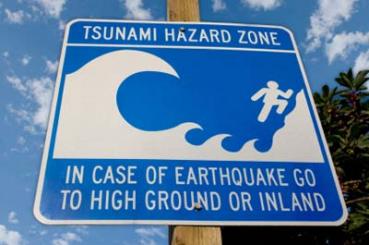
Nassau, The Bahamas – Over 100 experts have gathered in The Bahamas to discuss the importance of climate change education for Small Island Developing States (SIDS). The event is being held at the Wyndham Nassau Resort September 21 – 23. During the opening ceremony on Wednesday, September 21, Minister of Education, the Hon. Desmond Bannister welcomed the delegates.
“For quite some time, scientists and environmentalists have been sounding the alarm and focusing attention on the acute problem of global warming and the drastic shifts in weather patterns that have coincided with this state of affairs,” said Mr. Bannister. “Whether or not the average citizen has heeded these cries, the occurrence of tsunamis, tornadoes, hurricanes, earthquakes and the like have shaken us to the core by their frequency and unpredictability. We must all by now appreciate that there have been dramatic change in climatic patterns in recent years.”
Mr. Bannister said that while the UNESCO (United Nations Educational Scientific and Cultural Organisation) Teacher Education course on climate change is still being developed, he is ‘eager’ to see it implemented.
“We all recognise that teachers are the best channels of knowledge in our world and therefore, we must equip them with the knowledge and confidence to lead in this global mission to educate our citizens about how their lifestyles and their unchecked desires for comfort have made our planet vulnerable.”
Minister of State, Ministry of Environment, Hon. Phenton O. Neymour said that while SIDS produce less than one percent of global greenhouse gas emissions, their geographic and economic characteristics make them highly susceptible to the effects of climate change with more immediacy and severity than anywhere else in the world.
“Many SIDS like The Bahamas share economic characteristics that present challenges to sustainable development,” said Mr. Neymour. “In fact, SIDS comprise 12 of the 50 least developed countries designated by the United Nations. SIDS often depend almost entirely on specific sectors such as subsistence agriculture, aquaculture, fisheries and tourism. These industries are all susceptible to the effects of extreme weather events and sea-level rise – all of which may increase in frequency from climate change.
Also bringing remarks were, Chairperson for the National Commission, UNESCO Bahamas, Hon. Theresa Moxey-Ingraham. President of the General Conference of UNESCO, Dr. Davidson Hepburn, delivered opening remarks. He said that having the conference in The Bahamas was a defining moment in his career. Other speakers included Assistant Director-General for National Sciences, UNESCO, Ms. Gretchen Kalonji and Chief, SIDS Unit, UNDESA, Ms. Hiroko Morita-Lou. Permanent Secretary, Ministry of Education, Mrs. Elma Garroway served as Mistress of ceremony.
During the three-day conference, participants will discuss several topics including ‘Reducing the impact of natural disasters: education responses to disaster preparedness, coping with disaster and reducing the risks,’ and ‘Targeting the needs of the vulnerable: education programmes and strategies to reach and respond to the adaptation needs of youth, women and local communities.
A public lecture on ‘Climate Change and its implications for the Commonwealth of The Bahamas’ will be held on the evening of Thursday, September 22 at the Performing Arts Centre at the College of The Bahamas. Speakers will include Hon. Earl Deveaux, Minister of The Environment, Michael Pateman, Antiquities Monuments and Museum; Lisa Benjamin, Small Island Sustainability Programme, COB; Arthur Rolle, Department of Meteorology and Dr. Davidson Hepburn, President, General Conference, UNESCO. Radio personality and lawyer, Jeffrey Lloyd will serve as moderator.
The conference ends September 23.
By Betty Vedrine
Bahamas Information Services


